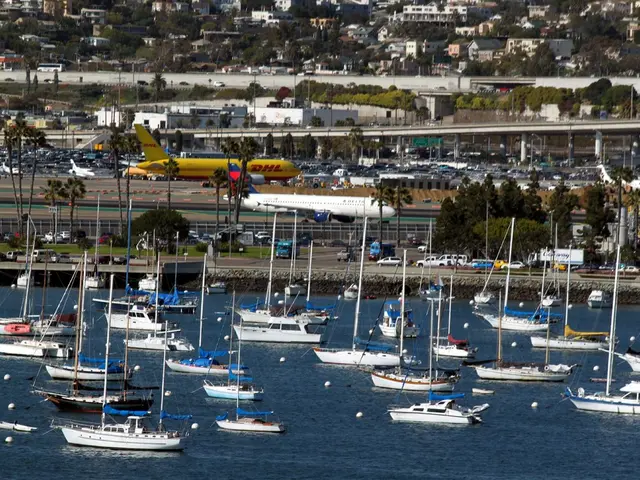Minister for Economic Affairs and Energy, Peter Altmaier, holds key office position. - Energy Ministers from various states had a meeting with the Federal Minister for Energy.
Rostock-Warnemünde Plays Host to Pivotal Energy Ministers' Conference
State energy ministers will convene today in Rostock-Warnemünde for a crucial Energy Ministers' Conference, marking their first meeting with the newly appointed Federal Minister of Economics, Katherina Reiche. The focus of the conference is expected to be on the ongoing energy transition, policy shifts, and the role of gas power plants.
The new minister's stance on energy security has drawn attention, particularly her emphasis on the necessity of a dependable and resilient energy system. Grid expansion and innovative strategies for risk management are seen as key to achieving this goal.
Renewable energy expansion lies at the heart of the energy transition debate, and Reiche calls for a realistic assessment of the associated costs and risks. Although renewables are vital for addressing climate change, she argues that they can't single-handedly ensure a steady supply for Germany's industrial sector.
Reiche supports the rapid deployment of auctions for up to 20 gigawatts of new gas-fired power plant capacity. These plants are intended to provide vital flexibility and security during the transition, acting as a bridge and backup while renewable energy capacity grows.
Hydrogen fuel cells and carbon management technologies (CCS/CCU) are both endorsed by Reiche for their potential roles in decentralized power supply and emissions management, respectively. The digitization of infrastructure is also a focus, with a view to better incorporating digital technologies and data centers into the energy system.
Industry competitiveness hinges on stabilizing energy prices, and Reiche proposes introducing reserve power plants to address these concerns. A new industry power price and flexible decarbonization rules for the heating sector are also on the agenda, with the aim of reducing long-term CO₂ emissions.
EU coordination is crucial, given the complexities of European energy markets, and Reiche stressed the importance of collaborating closely on new energy and climate policies. However, her support for new gas power plants has drawn criticism from environmental groups, who fear it may prolong the use of fossil fuels.
Some critics also argue that Reiche's focus on industry needs could slow progress on climate goals, as her call for balancing renewables expansion with grid capacity might imply prioritizing stability over the speed of the energy transition. The removal of climate action responsibilities from the economy ministry has also met with resistance, particularly from environmentalists.
Nonetheless, Reiche's leadership is defined by pragmatism, with a focus on delivering a secure, stable, and modern energy system, even as she balances industrial demands with the urgency of the climate transition.
- The newly appointed Federal Minister of Economics, Katherina Reiche, who will be attending the Energy Ministers' Conference in Rostock-Warnemünde, has emphasized the importance of a dependable and resilient energy system, including grid expansion and innovative risk management strategies.
- Reiche has called for a realistic assessment of the costs and risks associated with renewable energy expansion as it plays a crucial role in the energy transition debate for Germany's industrial sector.
- A key proposal by Reiche is the rapid deployment of auctions for up to 20 gigawatts of new gas-fired power plant capacity to provide flexibility and security during the transition.
- Reiche's efforts to address industry competitiveness include proposals for introducing reserve power plants, new industry power pricing, and flexible decarbonization rules for the heating sector, with the ultimate goal of reducing long-term CO₂ emissions.








